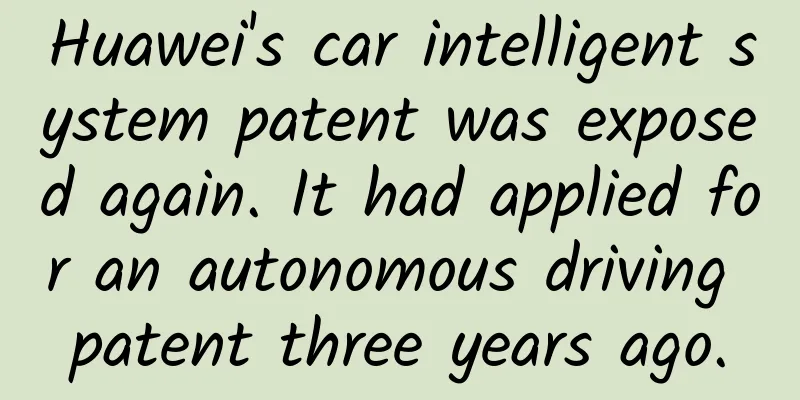Big data "killing familiarity" new gameplay or Apple's deep routine

|
Many people have probably experienced the term "killing the familiar", but many people may not have heard of "killing the familiar" with big data. As a new routine, a new way of playing has now infiltrated our daily lives unconsciously. Perhaps you have never noticed that your most common behaviors such as taking a taxi, booking a hotel, and buying a membership are inadvertently "taken advantage of" by some of the merchants we use the most and trust the most. So today, let's take a revealing attitude to let you appreciate how they are now "taking advantage of" the merchants. Kill the familiar, kill the familiar, kill the familiar Killing the familiar: As the saying goes, "acquaintance is a treasure", which means that people know each other relatively well and know each other well. In the long run, trust will be generated. In other words, it is easier to get things done with acquaintances. At critical moments, acquaintances can seek higher personal interests. China has been an acquaintance society since ancient times. However, with the development of the market economy, economic rationality has eroded the relationship between acquaintances, and some behaviors have emerged in society that specifically use acquaintances to seek benefits, which is called "killing the familiar". Nowadays, driven by extreme selfishness and individualism, "familiar" people have become the target of direct profit for some people, and the so-called "killing the familiar" phenomenon has emerged. The so-called "killing the familiar" is simply to rack one's brains and use any means to earn money and defraud acquaintances, harming others for personal gain - harming acquaintances for personal gain. Look, with a smile on their face, in the cordial chat and sighing greetings, they will gently slaughter you. The above two paragraphs are from Baidu Encyclopedia, but it is not difficult to see that the phenomenon of "killing the familiar" is quite common in society. Of course, with the advent of the Internet age, we may choose to buy goods from small vendors less and less, instead, we are replaced by various e-commerce platforms and Internet consumption. You can go out without money, as long as you have a mobile phone to complete all payment behaviors, but little do people know that in these seemingly regular transactions, there are "killing the familiar" behaviors. Weibo user @廖师傅廖师傅 exposed the phenomenon of "killing the familiar" by big data Recently, a piece of news has gone viral on Weibo. A Weibo user named @廖师傅廖师傅 described his experience of being “taken advantage of” by big data. This user often booked a specific hotel room through a travel website. The price was generally around 380-400 yuan. However, when he asked the hotel price at the front desk, he found that it was only 300 yuan. When he checked with his friend’s account, it was also 300 yuan, but when he checked with his own account, it was still 380 yuan. Once the incident happened, it can be said that it caused a huge uproar. In addition to booking hotels, the phenomenon of "taking advantage of the familiar" is also involved in booking air tickets, buying movie tickets, and taking taxis. Netizens also began to complain about the various experiences of being ripped off that they have encountered in their daily lives. In the era of big data, it is difficult to prevent "killing the familiar" The Internet "pricing spree" is not unique to China. As early as 2000, Amazon had the phenomenon of differential pricing. At that time, an Amazon user deleted the cookies on his browser and then browsed his previous DVD, only to find that the price of the product had dropped from US$26.24 to US$22.74. As soon as the news came out, Amazon was criticized. Later, Amazon CEO Bezos publicly apologized for this, saying that this was just a differential pricing experiment shown to different customers, and it had absolutely nothing to do with customer data. Everything was just for testing. But in the Internet environment at that time, it obviously did not cause much waves. In fact, the reason why businesses in the Internet industry can be so blatant in "killing the familiar" is mainly due to information asymmetry. In this era of data sharing, businesses can easily know your personal information, understand everyone's consumption habits through big data, and then order dishes based on people, but consumers know nothing about this. For example, some wealthy people who are not sensitive to prices or users who travel on public funds will not care about higher prices, while those who are haggling over prices will get a lower price. This is not a problem from an economic point of view, but it is a bit scary to think about it because merchants will use your personal information to find out your consumption habits and customize your consumption plan. It is not illegal to consume "killing familiarity" Then some people will definitely ask, isn’t “killing the familiar” illegal? I can tell you very clearly: it is not illegal. According to Article 14 of my country’s “Price Law”: Business operators providing the same goods or services shall not practice price discrimination against other business operators with the same trading conditions. Since the law does not provide a detailed explanation of “equal trading conditions”, according to this rule, the “differential pricing” of some platforms based on geographic location, mobile phone model, browsing history, and consumption history cannot be equated with “price discrimination”. In addition, according to some relevant laws in Europe and the United States, such behavior is not judged to be illegal. This is like membership consumption. If you recharge your membership, you will naturally enjoy preferential treatment, and those who do not recharge can only go with the flow. No one will question that such behavior is illegal. But in essence, although it is not a problem for businesses to treat consumers differently based on their spending power, it is reasonable and unacceptable to everyone. Speaking of membership, I believe everyone is familiar with it. You need membership to use QQ, watch videos, listen to music, and even download movies. But there is a big story behind this small membership. Apple's tricks are deep: only taking commissions but not taking advantage of old customers Today's smartphones are basically divided into two major camps, iOS led by Apple and the Android camp led by domestic mobile phones. However, there is an interesting thing: Apple users generally have to spend more money than Android users to enjoy services. The price of third-party services for iOS and Android systems is purely different The author also conducted an experiment to test the membership recharge of Tencent Video and iQiyi Video, and the results were really shocking. First, let's look at the membership recharge of iQiyi Video. It can be seen that whether it is a monthly or annual subscription, Android users pay more than Apple users, and the annual subscription service has a difference of 40 yuan, which shows that the gap is really not small. The same is true for Tencent Video, where the annual subscription also has a difference of 35 yuan. Tencent Video membership purchase interface (left): Android (right): iOS iQIYI membership purchase interface (left): Android (right): iOS In addition to the author's test, many netizens on the Internet have tested other APPs. This phenomenon exists in all mainstream APPs, whether it is QQ membership, Youku membership, or other mainstream APPs. Just when we were criticizing the members of these video websites, Apple still stabbed us in the back. We have to say that Apple really knows how to play games. The reason why Apple users have to pay more for third-party services can be traced back to Apple's APP ecosystem. The biggest difference between iOS and Android is its closed nature. All iOS devices that want to download APPs must download them from Apple's own APP Store, which means that any APP must be reviewed by Apple before it is put on the shelves. In this case, it is natural that "my turf is mine", and all rules and regulations must be followed according to Apple's regulations. iOS users must pass App Store certification for payment One of the regulations is that all paid software and functions must be paid for through the Apple App Store, and this route is not in vain, as Apple will charge about 30% of the commission (or service fee). As an APP developer, you are definitely not willing to pay Apple out of your own pocket, so naturally the above situation occurs. If you want to buy a membership, you must pay through the App Store, so if you want to go through here, you have to leave a "toll". Therefore, Apple's membership fee is slightly higher than Android, which is 30%. As the saying goes, the wool comes from the sheep, and we, the users, suffer the most. Not only do we have to pay to skip ads, but we also have to endure the exploitation of two companies at the same time. I wonder if you still remember the battle between WeChat and Apple a few years ago. Apple forcibly removed the WeChat reward function. The main reason was that the WeChat reward function went directly through WeChat payment and did not go through Apple's payment channel. So Apple was naturally unhappy, so it forcibly removed the WeChat reward function. Just when everyone thought that Apple would be replaced by WeChat and vice versa, the two companies seemed to have suddenly eased off and announced that they would re-launch the reward function in the future. It seems that the two giants, who are as rich as a country, are unwilling to fight each other. WeChat's status in China does not need to be elaborated too much. If Apple removes WeChat from its app store, it will directly lose the Chinese market. Once it loses the Chinese market, I'm afraid Apple will have a hard time. Of course, it is not news that Apple takes a cut from software services. The key point is that compared with the big data "killing the familiar" that appears on other platforms, Apple is obviously a veteran driver. It does not use the "killing the familiar" method, but uses the routine of charging new and old customers at the same price. This method is obviously more clever. A few more words about "killing the familiar" The University of Pennsylvania once conducted a survey, and about 76% of American adults said that they would be very annoyed if they found that other people were paying less for the same product. For Chinese people, who have relatively poor spending power, this feeling is even more serious. Therefore, although online consumption price discrimination is understandable, it is emotionally unacceptable. As a post-90s generation and a senior online consumer, I can understand the logic of "killing the familiar" from a legal point of view, but it does hurt the feelings of users. We all know that the domestic Internet consumption environment can be said to be very impetuous. Companies are really racking their brains to make money. Video websites often have 120-second ads that make people want to curse. It is obviously a 100M fiber but the download speed is slow. If you want to enjoy high-quality services, you can only recharge your membership. As users, we are like lambs to be slaughtered. No matter which platform or system, they have never really thought about the problem from the user's perspective. They just want to get from users, but as users, we are powerless. Even if they tell you openly, "If you have money, I will charge you more," we are powerless to fight back. In fact, after such an investigation, the author is saddened by such a consumption environment, because there is no solution to this "killing the familiar". The only thing we can do is to change to an Android phone if we want to recharge our membership, and to compare prices or re-apply for an account if we want to book a cheap hotel. We can only sit and wait for death and passively bear all this. We can only hope that our Internet companies can consider more users and not just focus on "money". Although pricing differentiation is not illegal, it does hurt consumers' feelings towards your integrity. |
<<: How to activate a bus card on iPhone? Here's everything you need to know
>>: Implementing user-unaware background crash handling in Android
Recommend
How much does it cost to produce the Baise teaching materials mini program?
In order to better penetrate into various industr...
Jet black AirPods hands-on experience: perfect match with iPhone 7
Although AirPods were badly criticized when they w...
Will there be no mosquitoes if you live in a high-rise building? Mosquito: How high can you guess I can fly?
"If you live high enough, there will be no m...
How to improve the activity of private domain communities?
There are a lot of WeChat communities nowadays. I...
A perfect ending! Goodbye, Tianzhou-3
The Tianzhou-3 cargo spacecraft re-entered the at...
After symptoms appear, the mortality rate is about 100%! Be careful of 5 common situations
After reading the above popular science, you may ...
11-year-old boy's heart stopped beating for 52 hours! Beware of fulminant myocarditis
Recently, an 11-year-old boy in Guangdong suffere...
What kind of business is good to start after the Wuhan epidemic? These 10 industries will experience explosive growth!
What kind of business is good to start after the ...
If even paying money doesn’t work, how can we wake up users?
If you ask me, is there any way to quickly double...
How to do marketing if the budget is not enough?
We all know that how many people can be promoted ...
After three days of not using it, the mask has turned into a bonsai. Will the seaweed mask sprout when applied on the face?
Everyone knows about seaweed masks, which are the...
You can recognize everything by taking a photo. How does AI “understand” pictures?
Welcome to Science Popularization China’s special...
Why is the phone still not easy to use even though it has such a high performance score?
Is the performance of the mobile phone good? Just...
Internet TV: Industry observations after interviewing license holders
According to Streaming Media Network: On July 11 ...
When will the Qingdao epidemic end in 2022? When will it be unblocked? Attached the latest news
Recently, the first city in Shandong Province to ...









